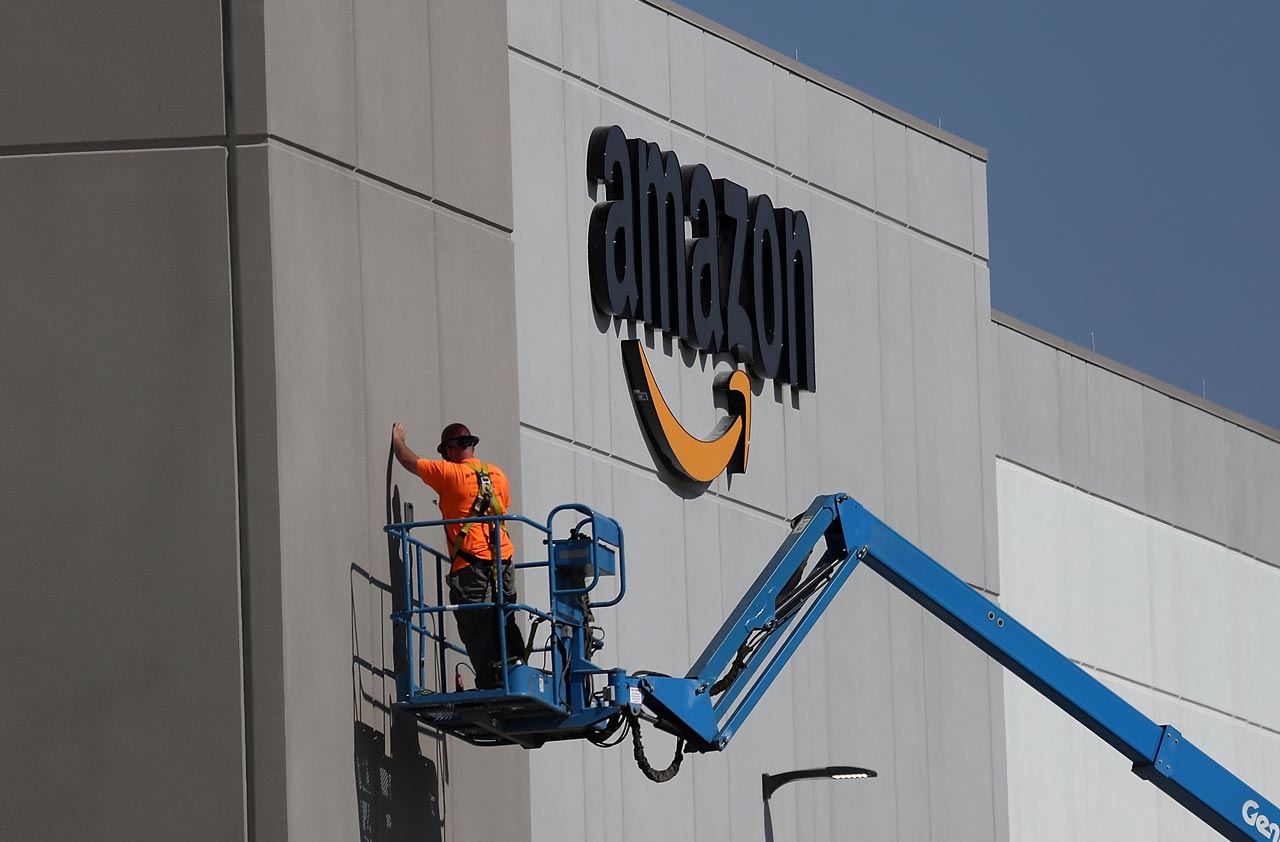Should Firms Share the Wealth With Workers?
Companies don’t have any general moral obligation to pay more than the market dictates, but it often makes good business sense.

Profit and prosper with the best of Kiplinger's advice on investing, taxes, retirement, personal finance and much more. Delivered daily. Enter your email in the box and click Sign Me Up.
You are now subscribed
Your newsletter sign-up was successful
Want to add more newsletters?

Delivered daily
Kiplinger Today
Profit and prosper with the best of Kiplinger's advice on investing, taxes, retirement, personal finance and much more delivered daily. Smart money moves start here.

Sent five days a week
Kiplinger A Step Ahead
Get practical help to make better financial decisions in your everyday life, from spending to savings on top deals.

Delivered daily
Kiplinger Closing Bell
Get today's biggest financial and investing headlines delivered to your inbox every day the U.S. stock market is open.

Sent twice a week
Kiplinger Adviser Intel
Financial pros across the country share best practices and fresh tactics to preserve and grow your wealth.

Delivered weekly
Kiplinger Tax Tips
Trim your federal and state tax bills with practical tax-planning and tax-cutting strategies.

Sent twice a week
Kiplinger Retirement Tips
Your twice-a-week guide to planning and enjoying a financially secure and richly rewarding retirement

Sent bimonthly.
Kiplinger Adviser Angle
Insights for advisers, wealth managers and other financial professionals.

Sent twice a week
Kiplinger Investing Weekly
Your twice-a-week roundup of promising stocks, funds, companies and industries you should consider, ones you should avoid, and why.

Sent weekly for six weeks
Kiplinger Invest for Retirement
Your step-by-step six-part series on how to invest for retirement, from devising a successful strategy to exactly which investments to choose.
Q: I’ve read that the total profits of U.S. corporations recently hit their all-time highest share of the nation’s annual output—somewhere between 11% and 14% of gross domestic product. At the same time, the share going to labor has fallen to a five- or six-decade low (62% of GDP for total compensation, including benefits, or 44% for cash wages and salaries). This suggests to me that business has the ability—and moral obligation—to start restoring some of the pay and benefits that were slashed in the Great Recession. What do you think?
I agree, but with plenty of caveats. Many businesses have not recovered to their normal levels of sales and profits, and they are appropriately cautious about whether their improved situations will last. And even corporations now enjoying record profits are understandably conflicted about how to deploy their retained earnings: Invest them in internal growth, buy other firms, or reward shareholders with stock buybacks and higher dividends.
As for those highly profitable firms that are giving big cash rewards to their owners and senior executives, I believe they have a moral obligation—and also a strong self-interest—to include their rank-and-file employees in the largess, especially if employees bore more than their fair share of the pain during the slump. This should include bigger year-end bonuses, larger contributions to retirement accounts, and—if the renewed profitability looks secure—higher wages and salaries.
From just $107.88 $24.99 for Kiplinger Personal Finance
Become a smarter, better informed investor. Subscribe from just $107.88 $24.99, plus get up to 4 Special Issues

Sign up for Kiplinger’s Free Newsletters
Profit and prosper with the best of expert advice on investing, taxes, retirement, personal finance and more - straight to your e-mail.
Profit and prosper with the best of expert advice - straight to your e-mail.
Ultimately, the price of employee compensation is set by supply and demand. Companies don’t have any general moral obligation to pay more than the market dictates, but it often makes good business sense to do so if they can. Strong compensation helps attract and retain the most-talented staff, boosting performance and reducing the cost of turnover. It benefits society, too, because employees are everyone’s customers. Henry Ford, a hard-nosed capitalist, said he paid higher wages because he wanted his workers to be able to afford the cars they were building.
Profit and prosper with the best of Kiplinger's advice on investing, taxes, retirement, personal finance and much more. Delivered daily. Enter your email in the box and click Sign Me Up.

Knight came to Kiplinger in 1983, after 13 years in daily newspaper journalism, the last six as Washington bureau chief of the Ottaway Newspapers division of Dow Jones. A frequent speaker before business audiences, he has appeared on NPR, CNN, Fox and CNBC, among other networks. Knight contributes to the weekly Kiplinger Letter.
-
 Nasdaq Leads a Rocky Risk-On Rally: Stock Market Today
Nasdaq Leads a Rocky Risk-On Rally: Stock Market TodayAnother worrying bout of late-session weakness couldn't take down the main equity indexes on Wednesday.
-
 Quiz: Do You Know How to Avoid the "Medigap Trap?"
Quiz: Do You Know How to Avoid the "Medigap Trap?"Quiz Test your basic knowledge of the "Medigap Trap" in our quick quiz.
-
 5 Top Tax-Efficient Mutual Funds for Smarter Investing
5 Top Tax-Efficient Mutual Funds for Smarter InvestingMutual funds are many things, but "tax-friendly" usually isn't one of them. These are the exceptions.
-
 You May Get a Raise in 2022
You May Get a Raise in 2022Employee Benefits In a strengthening labor market, businesses are paying more to attract and retain employees.
-
 Before You Sign Up for Health Insurance at Work, Read This
Before You Sign Up for Health Insurance at Work, Read ThisEmployee Benefits It’s open enrollment time at workplaces across the country – for health insurance as well as a bevy of other benefits. Here are four tips to help navigate the maze of benefit decisions.
-
 Open Enrollment Brings New Employee Perks (for a Price)
Open Enrollment Brings New Employee Perks (for a Price)Employee Benefits The pandemic and an increasingly diverse workforce have led to more benefits options for workers.
-
 Can Your Boss Make You Go Back to Work?
Can Your Boss Make You Go Back to Work?Coronavirus and Your Money Even if you don’t have legal protections, you may be able to negotiate with your boss.
-
 This Olympian Tackles the Wealth Gap
This Olympian Tackles the Wealth GapFinancial Planning She encourages advisers to introduce students to financial planning.
-
 Should Nondisclosure Agreements Be Banned in Sexual Harassment Settlements?
Should Nondisclosure Agreements Be Banned in Sexual Harassment Settlements?Business Costs & Regulation Knight Kiplinger offers his advice on how companies can improve their handling of harassment problems.
-
 Are Incentives to Lure New Businesses Fair to Current Employers?
Are Incentives to Lure New Businesses Fair to Current Employers?Business Costs & Regulation Job growth and spending at an existing firm should be worth just as much in incentives as new jobs and capital investment brought in from outside.
-
 3 Top Companies That Are Going to the Dogs
3 Top Companies That Are Going to the DogsFeature Major corporations are adopting pet-friendly office policies as an employee perk.